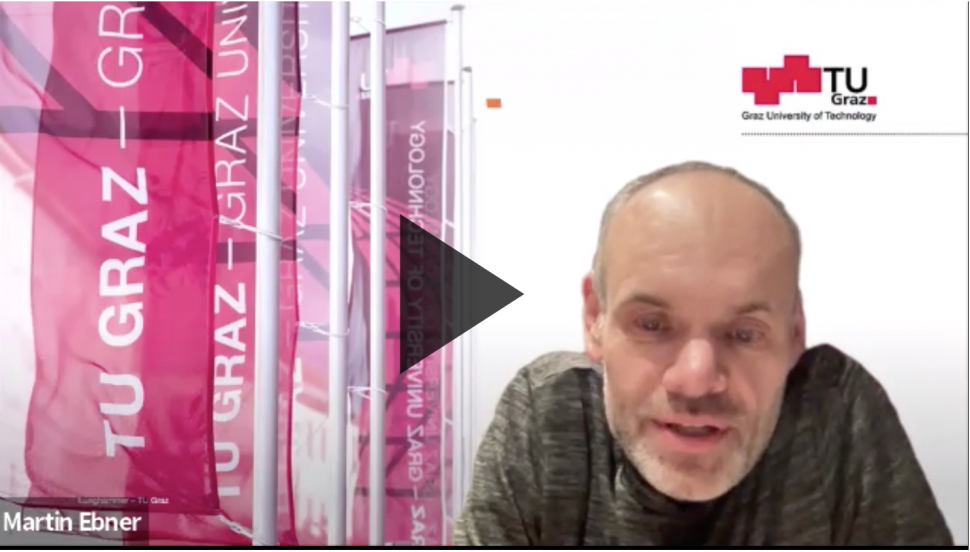MOOC about AI by AI: An Interview with Martin Ebner on the Transformative Potential of Artificial Intelligence
Are you AI-curious? Do you wonder if image generators such as Dall-e can turn your ideas into the next Picasso painting? Are you worried that your students will cheat relentlessly with their new study buddy ChatGPT? Perhaps you are secretly hoping AI will teach your next class, write recommendation letters or attend department meetings? As a field, educational technology grapples with the transformative potential and the current limitations of AI technology.
More and more educators experiment with artificial intelligence in teaching and learning settings – sometimes with mixed results. AI-expert Donald Clark, author of the seminal book ‘Artificial intelligence for learning’ recently explained that most people do not know how to use AI tools such as ChatGPT. “It has no comprehension, no consciousness. It’s a bit like speaking to an Alien. Don’t make the mistake to use it like a search engine. If you ask it a boring question, it will come up with a boring answer. If you challenge it, and ask it to emulate a voice it will amaze you”.
If you work in instructional design, artificial intelligence is everywhere: Prominent educational technology experts like Alec Couros and Helen Crompton have conceptualized and shared faculty trainings to discuss the consequences of advances in AI for the education sector. EdTech expert Inge de Waard recently developed a wonderful example of creative AI-use. Johannes Cronje is organizing research conferences with a call written by AI.
Prof. Dr. Martin Ebner and his colleagues from TU Graz (Austria) are taking their explorations into the field of Massive Open Online Courses (MOOCs): They are offering a MOOC about artificial intelligence in society – designed by AI. The human participants are invited to get first-hand experiences with technological capabilities and limitations.
From the course description:
With this course, we would like to use a practical example to show what AI systems are currently capable of (as of April 2023), but also where there are still difficulties. You can get an impression for yourself, discover errors or be amazed at how good the applications already are. The course is designed to invite you to critically question AI-generated content and to reflect on the areas in which it can be used in a sensible or supportive way and where it cannot.
The MOOC ‘Societech: Society in the Context of Information Technology’ start on may 15 2023. The course language is German. Depending on the results and learner feedback, a future iteration in English language is a possible follow-up. In each lesson the course facilitators document how the content was generated by explaining both the software and the prompts they used.
Learn more and sign up: https://imoox.at/course/GIKI?lang=en
In the video interview for AACE Review Martin Ebner shares background on the concept of the course and his views on prompt engineering, AI-Gerism and pedagogical strategies.

